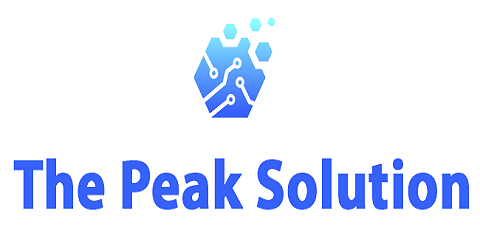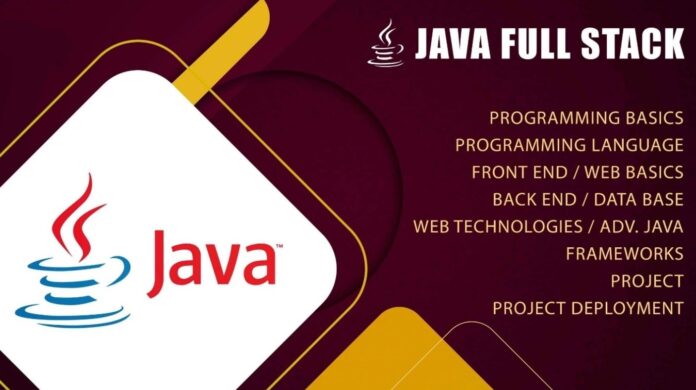In today’s fast-paced web development landscape, building efficient and scalable full-stack applications requires mastering both front-end and back-end technologies. With the introduction of Deno, an alternative JavaScript runtime, developers can now create highly secure and performant applications while taking advantage of modern multi-threading capabilities.
For those looking to gain expertise in full-stack development, enrolling in a Java full stack developer course can provide in-depth knowledge of backend technologies, front-end frameworks, and concurrency techniques. By understanding multi-threading concepts in Deno, developers can enhance application performance, ensuring seamless user experiences across various platforms.
Understanding Multi-Threading in Deno
Deno is designed with performance and security in mind, offering built-in support for multi-threading through Web Workers. Unlike traditional JavaScript execution, which relies on a single-threaded event loop, Deno allows developers to leverage multiple threads to perform parallel tasks. This is especially useful for applications that manage large amounts of data processing, real-time messaging, or complex computations.
The ability to run tasks concurrently ensures that applications remain responsive, even under heavy workloads. While Node.js also provides ways to manage asynchronous operations, Deno simplifies multi-threading with an intuitive API that makes it easier to distribute tasks across multiple cores efficiently.
Advantages of Using Deno for Full Stack Applications
- Enhanced Security – Deno enforces security permissions by default, preventing unauthorized access to the file system, network, and environment variables. This feature significantly reduces vulnerabilities often exploited in traditional JavaScript runtimes.
- Modern Module System – Unlike Node.js, which relies on npm and package.json, Deno uses a URL-based module system, eliminating dependency bloat and making dependency management straightforward.
- Seamless TypeScript Support – Deno natively supports TypeScript without requiring additional configuration, making it easier for developers to build type-safe applications.
- Built-in Web Server – With an efficient HTTP server included, Deno simplifies backend development by removing the need for external frameworks, reducing overhead, and improving performance.
For developers seeking structured learning paths in full-stack technologies, a full stack developer course in Bangalore can help bridge the void between theoretical knowledge and practical implementation. Courses focused on modern web development provide hands-on experience in working with Deno, along with best practices for optimizing full-stack applications.
Concurrency in Full Stack Applications
Concurrency plays a critical role in enhancing application efficiency, particularly for full-stack applications handling real-time data processing. Deno allows developers to implement concurrency through lightweight worker threads, enabling parallel execution of multiple tasks without blocking the main process.
This approach is especially useful for applications dealing with
- Real-time streaming – Applications such as chat platforms or financial dashboards require concurrent data updates to ensure smooth interactions.
- Batch processing – Large-scale data operations, including analytics and reporting, benefit from multi-threading by breaking tasks into smaller, manageable chunks.
- Microservices architecture – Deno’s ability to handle concurrent requests efficiently makes it well-suited for microservices-based applications that require distributed workloads.
Developers can explore these advanced concurrency models by getting into a Java full stack developer course, which provides practical insights into handling asynchronous operations effectively.
Optimizing Full Stack Applications with Deno
Beyond multi-threading, optimizing full-stack applications requires a well-structured architecture that ensures smooth communication between the frontend and backend. Deno’s lightweight approach to backend development helps in minimizing latency, reducing server load, and improving response times.
To further enhance performance, developers can focus on:
- Efficient API design – Implementing RESTful or GraphQL APIs ensures seamless data exchange between different layers of the application.
- Database optimization – Proper indexing, caching strategies, and query optimization help prevent bottlenecks, keeping the application responsive.
- Load balancing – Distributing requests across multiple instances ensures that no single server becomes overwhelmed, improving overall scalability.
Mastering these optimization techniques is crucial for developers aiming to build high-performance applications. A full stack developer course in Bangalore provides structured guidance on implementing these strategies effectively, preparing developers for real-world challenges.
Deploying Multi-Threaded Applications with Deno
Deployment plays a crucial role in ensuring that applications run smoothly in production environments. Deno simplifies deployment by offering built-in support for permissions management, secure dependency handling, and cloud-ready configurations.
When deploying multi-threaded full-stack applications, key considerations include:
- Serverless deployment – Cloud platforms such as Deno Deploy, AWS Lambda, and Vercel offer seamless hosting for Deno applications, eliminating the need for complex infrastructure management.
- Containerization – Using Docker and Kubernetes helps in scaling applications efficiently while maintaining a consistent development environment.
- Continuous Integration & Continuous Deployment (CI/CD) – Automating testing, building, and deployment pipelines ensures that updates are rolled out smoothly with minimal downtime.
For developers aspiring to master cloud deployment techniques, getting into a Java full stack developer course provides hands-on experience in setting up scalable full-stack applications using Deno and modern cloud platforms.
Future Trends in Deno and Multi-Threaded Development
As the need for high-performance web applications persists to grow, the adoption of Deno is expected to rise. With ongoing improvements in multi-threading capabilities, Deno is likely to introduce more efficient concurrency models, making it an even more attractive option for full-stack development.
Key trends to watch out for include:
- Improved Worker APIs – Enhanced support for parallel execution will enable developers to build even more responsive applications.
- Integration with AI and Machine Learning – Deno’s efficiency in handling real-time data processing makes it a strong candidate for AI-powered applications.
- Expansion of Deno Deploy – More cloud providers are expected to integrate Deno, making serverless deployment easier and more accessible.
To stay ahead of these trends, developers should focus on continuous learning. Enrolling in a full stack developer course in Bangalore can help professionals keep up with the latest advancements in web development, ensuring they remain competitive in the job market.
Conclusion
Building multi-threaded full-stack applications with Deno offers significant benefits in terms of performance, security, and scalability. By leveraging Deno’s multi-threading capabilities, developers can create applications that efficiently handle concurrent tasks while maintaining high responsiveness.
For those looking to gain expertise in full-stack development, a developer course provides the necessary knowledge and practical skills to work with modern technologies like Deno. Additionally, structured learning through a full stack developer course in Bangalore can help professionals master deployment strategies, database optimization, and multi-threading best practices.
As web development continues to evolve, developers who embrace new technologies like Deno and refine their multi-threading skills will be well-equipped to build scalable, high-performance applications for the future.
Business Name: ExcelR – Full Stack Developer And Business Analyst Course in Bangalore
Address: 10, 3rd floor, Safeway Plaza, 27th Main Rd, Old Madiwala, Jay Bheema Nagar, 1st Stage, BTM 1st Stage, Bengaluru, Karnataka 560068
Phone: 7353006061
Business Email: [email protected]







